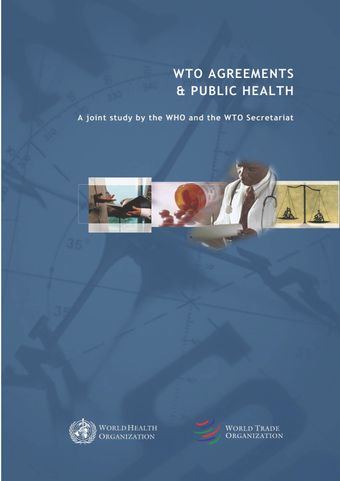- Home
- Books
- WTO Agreements & Public Health
- Chapter
Specific health issues and WTO agreements

- By: World Trade Organization
- Source: WTO Agreements & Public Health , pp 57-135
- Publication Date: May 2002
- DOI: https://doi.org/10.30875/1bb32d5c-en
- Language: English
As noted in the preceding Chapter, several WTO agreements are relevant to health policy. Generally, the positive growth and income effects of more open and predictable trade regimes can provide the resources, as well as goods, services and information, for effective health systems. The WTO agreements explicitly allow governments, in pursuing national health and other policy objectives, to take measures to restrict trade in order to protect health. This is legitimate as a matter of principle. The emphasis in WTO rules is on how policies are pursued without questioning the underlying objective. For example, is a measure applied or enforced in a way that discriminates between trading partners or between imported products and products produced domestically? Are there ways of implementing policy that would be less restrictive on trade? Thus, it is the manner in which government pursue specific health policies in practice which might have trade-related implications, which are examined in this Chapter.
-
From This Site
/content/books/9789287045492c011dcterms_subject,pub_countryId-contentType:WorkingPaperSeries -contentType:Periodical -contentType:BookSeries -contentType:ReportSeries105


